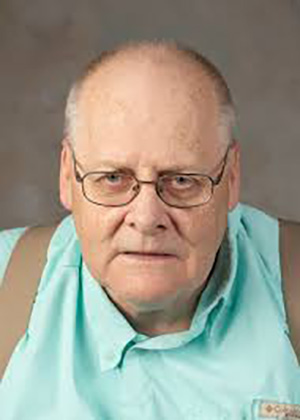Something strange has intrigued me in my decades of voting and covering elections. That is, when voters wait in line for 15 minutes to an hour, then spend 5 minutes or less actually filling in their ballot. Why? Maybe they just check off the party line and finish faster than an egg is boiled. If a candidate in their party is a dud, a known crook or lacks experience, so be it.
Perhaps the voter only pulls the lever for the two or three high-profile races, such as president and U.S. senator. Or the voter doesn’t like either candidate, so skips that contest. Or the voter does not know how important “down-ballot” positions are or has never heard of these candidates because they lack strong TV, radio or social media presences.
It reminds me of a man who shows up in the fourth inning of a baseball game and asks his friend what the score is. The friend replies, “Nothing to nothing.” So the late arrival responds, “Heck, I have not missed anything!” Yet he may have missed an amazing catch by the center fielder, a thrilling theft of a base or a classic double-play.
Voters who leave the polling station before voting in certain categories lead to what election officials call “undervotes.” As in the baseball game above, an undervote means some voters saw no consequence to skipping certain races. This voter has little interest in local or state politics, which directly affect him or her all the time.
According to Ballotpedia, “An undervote occurs when the number of choices is less than the maximum number allowed for that election. An undervote also occurs when no vote is cast for a single-choice election. An undervote can be intentional (such as protest votes or abstention) or unintentional (such as an oversight on the voter’s part or confusing ballot design.)”
The main reason so many people vote only for high profile roles (president, U.S. senator, congressman) is that they haven’t heard about either candidate in the less known categories. Or they may not appreciate how positions such as Public Service Commissioner affect them. On Nov. 3 we have a PSC election, between Republican incumbent Twinkle Andress Cavanaugh and Democrat Laura Casey.
If you do not want to vote in the PSC race anytime, a candidate may win who leans towards allowing increases in rates by utility companies for electricity. Who knows? Your gas and water bill may go up as well. To me, we currently have a responsible, competent crew of commissioners. Still, if you do not keep abreast of PSC happenings than you will be voting “blind” and throw away your choice in who becomes or stays a commissioner.
“Getting information off the Internet is like taking a drink from a fire hydrant,” said Michael Kapor. A founder of Lotus, he developed the Lotus 1-2-3 spreadsheet. Kapor’s quote means the web has so much information that it overflows like a hydrant. With so many choices, a voter can get discouraged and be unable to locate candidates on the web. But you will. Spend 15 minutes studying the candidates’ experience and positions. Become a conscientious voter.
My undergrad friends in the late 1970s used to say: “As a political nerd, Greg probably takes The Congressional Record to the beach!” I was a poli-sci major, but even I did not do that—except for once or twice. (Back then I knew the names of about 70 U.S. senators, 100 or so congressmen, and 40 governors.) But you don’t have to be that obsessed.
Overvotes are basically the reverse of undervotes; this is when someone votes more than the maximum number of selections allowed. An example of an overvote is a person voting for two candidates in a single category where it clearly says, “Vote for not more than one.” Henry M. Robert, editor of Robert’s Rules of Order Newly Revised, emphasized in his 2011 book that such votes are definitely illegal.
In the comic strip Pogo, the Possum says: “We have met the enemy and he is us.” The enemy is us when we don’t even spend 10 minutes to find out about down-ballot candidates. The enemy is us when we see campaign ads and don’t try to determine if their claims are true. In the end, as President Dwight D. Eisenhower said, “The future of this Republic is in the hands of the American voter.” Do your research, and choose wisely. Good luck!
Greg Markley has lived in Lee County for 20 of the past 24 years. An award-winning journalist, he has Master’s degrees in education and history. He taught political science as an adjunct in Georgia and Alabama.
